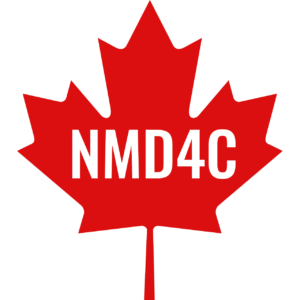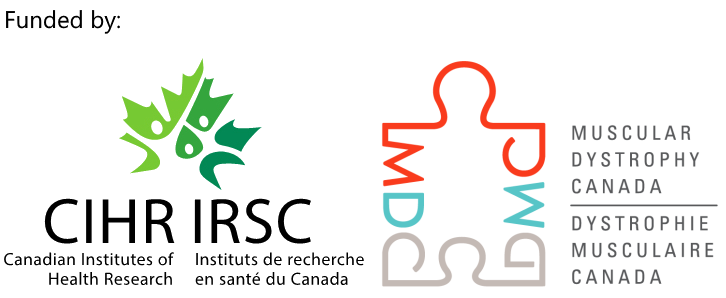Neuromuscular Biobanking
While several Canadian institutions maintain biobanks collecting samples of NMD patients among other pathologies, Canada still lacks a coordinated effort to systematically collect, process, store and provide NMD samples for research. Led by Dr. Jason Karamchandani, the biobanking task works to strengthen and support the Canadian neuromuscular disease (NMD) biobanking landscape through uniting existing Canadian biobanks.The NMD4C will work to create a virtual Canadian NMD biobank with a central Canadian catalogue that will amalgamate the sample information collected by individual biobanks, creating a larger collection.
Canadian Neuromuscular Biobanking Landscape
We are working with eight Canadian neuromuscular biobanks that are currently active in collecting and preparing a variety of samples covering a range of neuromuscular diseases. The directors of these biobanks have provided crucial feedback at each step of the virtual biobank’s planning. Currently the working group is analyzing the existing biobank sites’ frameworks, and collecting feedback on the digital tool, which will be used to collect and organize sample data. While the virtual biobank is in development, each of these eight sites has kindly provided information about what samples they collect and the conditions and policies for researchers to access them, which you can find listed on our interactive biobank map.
Ongoing Biobanking Work
The biobanking task will continue to unite the Canadian neuromuscular biobanking community and work towards building a centralized virtual biobanking catalogue. Full-time biobank developer Kevin LaFleur works with biobanking lead Dr. Jason Karamchandani at the Montreal Neurological Institute to develop and launch the virtual neuromuscular biobank catalogue and a digital consent tool to enable clinical samples to be used for research. The team also continues to refine a biobank framework and standards of practice for sample and data collection, harmonize inter-institutional and -provincial transfer agreements, and begin collaborating with international biobank initiatives to connect with researchers globally. As the samples available for research are non-renewable, the biobanking group will form an advisory committee to provide guidance on sample requests to the biobank.
Biobank Leads
Further Reading on Biobanks
- Devereux, L, Watson, PH, Mes-Masson, AM, Luna-Crespo, F, Thomas, G, Pitman, H et al.. A Review of International Biobanks and Networks: Success Factors and Key Benchmarks-A 10-Year Retrospective Review. Biopreserv Biobank. 2019.17 (6)512-519 PMID:31794678
- Mingirulli, N, Pyle, A, Hathazi, D, Alston, CL, Kohlschmidt, N, O'Grady, G et al.. Clinical presentation and proteomic signature of patients with TANGO2 mutations. J Inherit Metab Dis. 2020.43 (2)297-308 PMID:31339582
- Ambrosini, A, Quinlivan, R, Sansone, VA, Meijer, I, Schrijvers, G, Tibben, A et al.. "Be an ambassador for change that you would like to see": a call to action to all stakeholders for co-creation in healthcare and medical research to improve quality of life of people with a neuromuscular disease. Orphanet J Rare Dis. 2019.14 (1)126 PMID:31174585
- Lochmüller, H, Ambrosini, A, van Engelen, B, Hansson, M, Tibben, A, Breukel, A et al.. The Position of Neuromuscular Patients in Shared Decision Making. Report from the 235th ENMC Workshop: Milan, Italy, January 19-20, 2018. J Neuromuscul Dis. 2019.6 (1)161-172 PMID:30714970
- Kodra, Y, Weinbach, J, Posada-de-la-Paz, M, Coi, A, Lemonnier, SL, van Enckevort, D et al.. Recommendations for Improving the Quality of Rare Disease Registries. Int J Environ Res Public Health. 2018.15 (8) PMID:30081484

